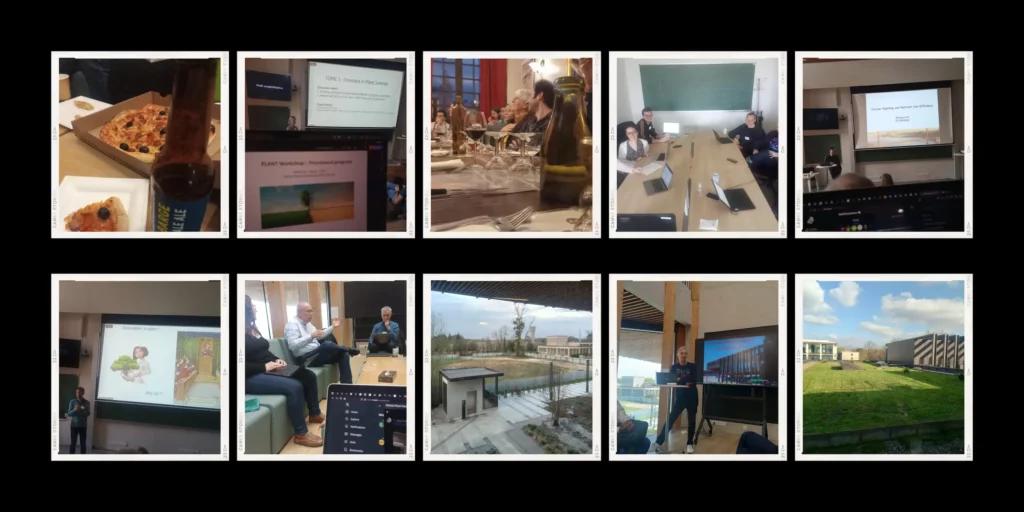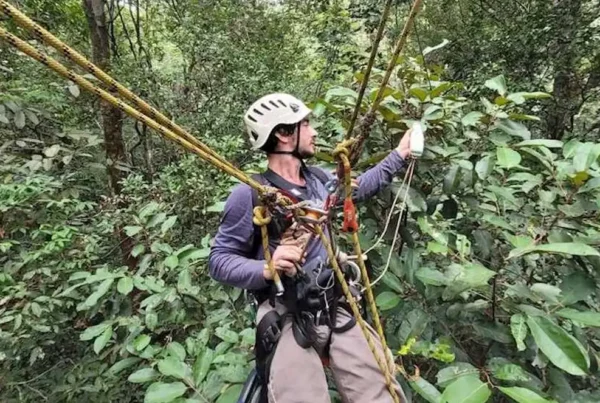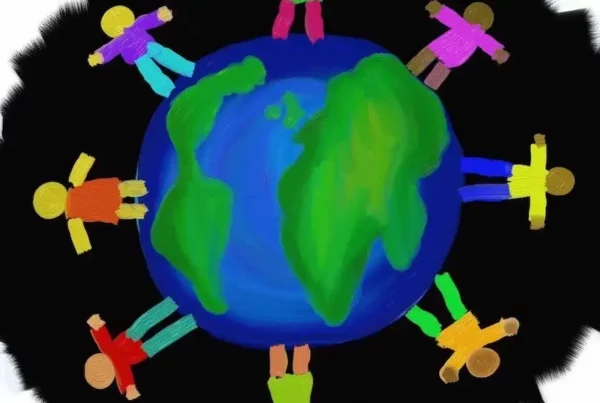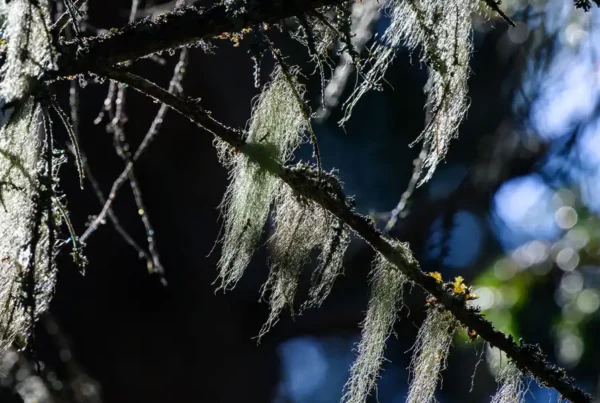By Isabel Mendoza (Chief Communications Officer)
During two weeks, I had the privilage to attend the Plant Sciences in the Anthropocene Workshop (24th March-4th April 2025) at Saclay Plant Sciences (SPS) representing The Global Plant Council. From the very first presentation to the final wrap-up, the workshop was a deep dive into the challenges —and yes, opportunities— plant science faces in the changing world of today and tomorrow.
Throughout these sessions, almost 100 plant science researchers, educators, and science communicators from around the globe gathered at the Institute Pascal on the Paris-Saclay Campus in Orsay (Paris, France). Together, we explored how plant science can contribute to shaping the future—and how the field itself must evolve to remain resilient in the face of climate change and societal transformation.
Week One: Setting the Groundwork for a Greener Future
Day 1–2: After arriving at midday on Monday 24th March, my workshop experience kicked off with Christophe Maurel (IPSiM) addressing how climate change is putting immense pressure on plant-water relations, followed by Dolf Weijers’ (Wageningen University) molecular deep dive into fundamental plant biology. These sessions set the tone: climate urgency and scientific curiosity go hand in hand. Tuesday opened with Marek Mutwil (University of Copenhagen), who shared how his lab uses AI to build knowledge graphs for gene function prediction—linking over 2 million biological entities with 90% accuracy. Kalina Haas (IJPB INRAE) followed with insights into plant cell growth using advanced bioimaging techniques. After the break, Sheng Luan (UC Berkeley) highlighted the role of calcium signaling in improving nutrient use efficiency under mineral limitations. Wrapping up the day, Bruno Moulia (PIAF INRAE) shared his “mayonnaise model” for fostering interdisciplinary collaboration in plant science.
Day 3–4: On Wednesday, Nicholas Provart (University of Toronto) introduced bioinformatics tools (BAR) with a fascinating case study on guard cells and drought, while Detlef Weigel (MPI Tubingen) reminded us that no evolutionary insight is complete without an ecological lens. After coffee, Veronica Grieneisen (Cardiff University) shared insights into the origin and impact of cell and tissue polarity in development. The afternoon brought thought-provoking exchanges from Jean Colcombet (INRAE) and Andreas Weber (CEPLAS) on whether plant science can truly rise to the Anthropocene’s grand challenges. On Thursday, the discussions went from the impact of climate extremes (Philippe Ciais, LSCE) to the promise and pitfalls of data-driven breeding (Ben Scheres, WUR), and the critical role of plant resilience (Pamela Ronald, UC Davis). Claire Chenu (INRAE) inspired with soil-carbon connections, while breakout groups dug into questions on plant science sustainability, security, and scientific sufficiency.
Day 5 and Weekend : The momentum carried into the weekend. On Friday, Pere Puigdomènech (CRAG) spoke about the scientist’s role in shaping policy, and Heribert Hirt (KAUST) introduced PlantACT, a plant science-driven resilience initiative. After the break, Monica Höfte (Ghent University) discussed “The importance of plant health for one health” and Faouzi Bekkaoui (INRA) presented the Moroccan case study on the “Contribution of agricultural research for better resilience of Moroccan agriculture.” During the weekend, those who remained in Paris enjoyed a group dinner on a Seine river cruise at sunset—one of the true highlights of the workshop.

Week Two: Pushing Boundaries & Cross-Pollinating Ideas
Day 6: On Monday, Paul Leadley (SPS) and Christian Huyghe (INRAE) explored navigating planetary boundaries, while Catherine Feuillet (INARI) laid out integrated innovation as the path forward.
Day 7–8: Tuesdays sessions ventured into forgotten crops, microbiota, plant metabolites, and machine learning. Olivier Hamant challenged the efficiency obsession in favor of robustness, and Sophie Nicklaus (INRAE) explored the behavioural science of plant-rich diets. Day 8 deepened our understanding of mycorrhizal partnerships and bioeconomy opportunities, ending with a lively social dinner at Le Gramophone, a local restaurant.
Day 9–10: The final stretch didn’t slow down. Wout Boerjan (VIB) highlighted how Arabidopsis research is transforming poplar trees for sustainable industries, Anne Osbourn (JIC) impressed with the potential of plant metabolites, and Kazuki Saito (RIKEN) and Wolfgang Busch (SALK) unveiled the next frontier of phytochemical genomics and carbon-capture root systems. Finally, Olivier Martin (SPS) closed the workshop with visions for the future.
Final Thoughts
This workshop was far more than a series of lectures, shared meals, and coffee breaks—it was a non-stop and dynamic conversation. Evening roundtables addressed the future of various aspects of research—basic, applied, science communication…—gathering insights that could shape the discipline moving forward. Several policy papers are expected to emerge from these discussions.
It was, truly, a space for exchange. From synthetic biology to soil health, from gene function prediction and QTLs to the transformation of global food systems, the overarching message rang clear: Plant science is not just about the plants—it’s about people, policy, and the planet in its enterity.
A huge thank you to Saclay Plant Sciences Network, the organizing team (Loïc Lepiniec, Marie-Jeanne Sellier, Olivier Martin, Francesca Sconfienza), and every speaker and participant who made these two weeks a global conversation with local roots and onward vision.
Stay tuned for session recordings and post-workshop materials.
To the full program: https://eng-saclay-plant-sciences.hub.inrae.fr/events/workshop-institut-pascal








